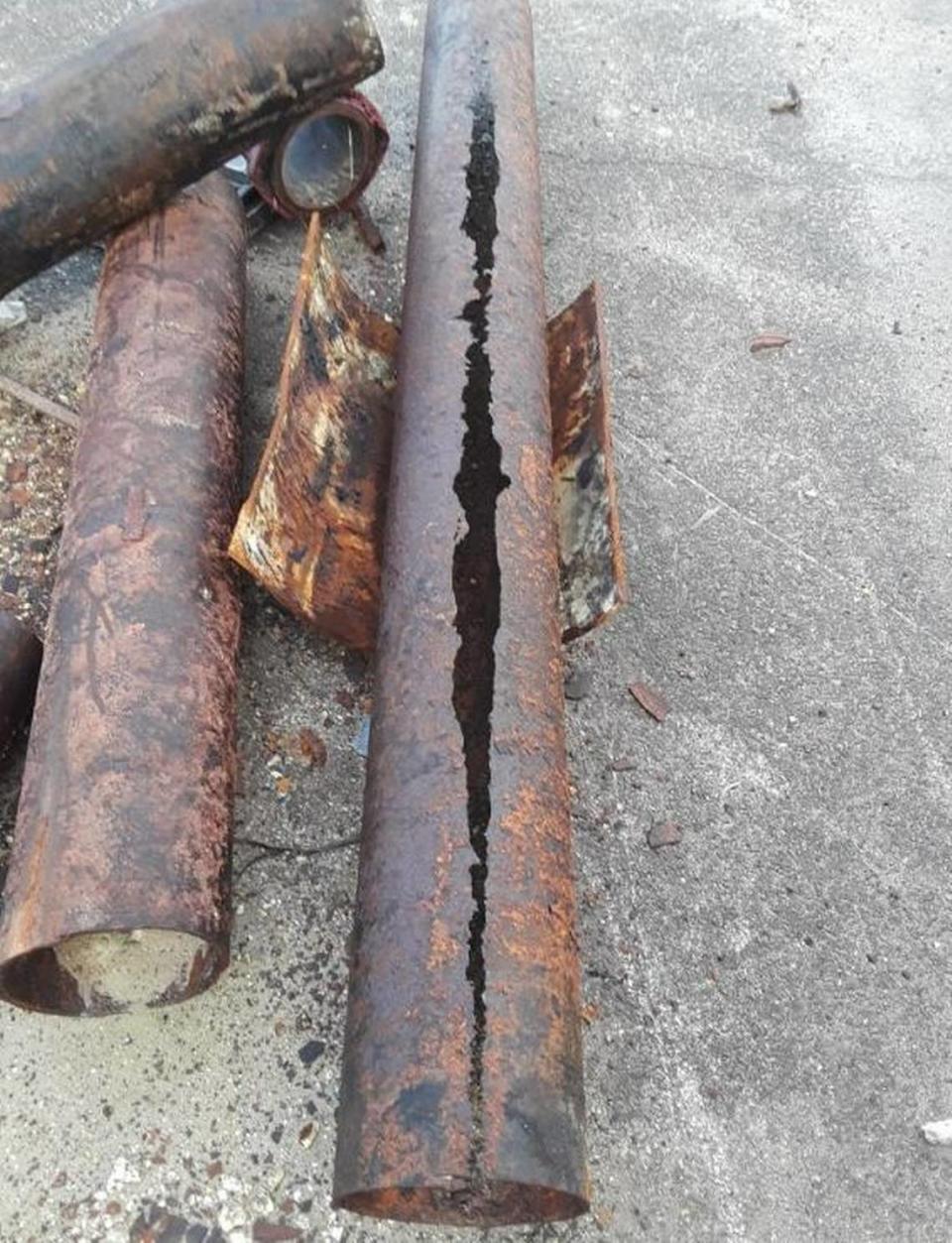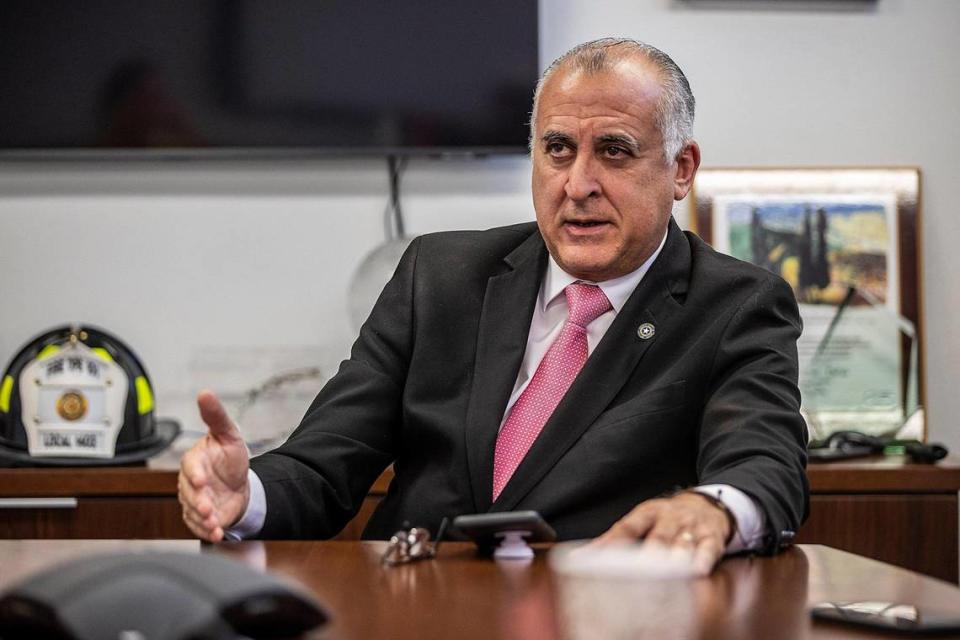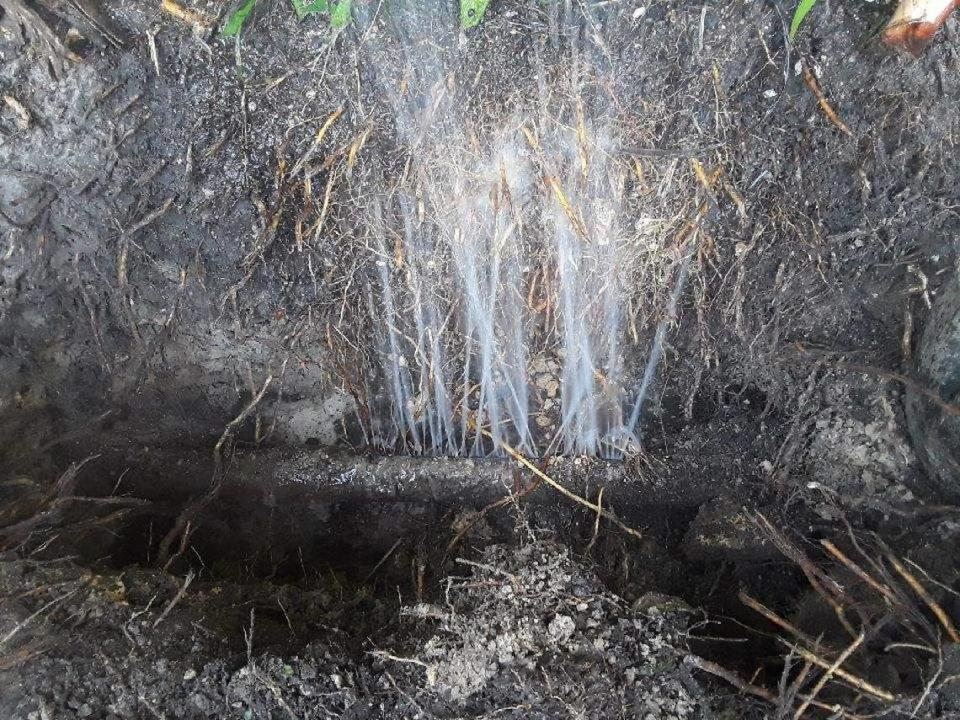Hialeah faces $18 million water debt as Miami-Dade issues an ultimatum
- Oops!Something went wrong.Please try again later.
For Hialeah residents, water and sewer bills have long been a contentious issue, igniting political debates about department management. Now the city faces a daunting debt of over $18 million to Miami-Dade County for past services, with the county exploring legal options to secure payment.
A July 22 letter from the office of Miami-Dade Mayor Danielle Levine Cava warns Hialeah that the county has made multiple and ongoing attempts to resolve the issue through meetings, emails and correspondence. The city currently owes $18.1 million that is over 90 days delinquent for water and sewer services provided between November 2020 and September 2023.
According to the letter obtained by el Nuevo Herald, the county notified the city in June 2023 that it owed over $27 million in unpaid charges for water and sewer services. In response, the city made some payments that July and August.
The city also has a debt of over $1.2 million that is less than 90 days old, according to the county.
Miami-Dade acknowledged that the city has been paying its sewer service invoices in full since October 2023, almost a year after Mayor Esteban “Steve” Bovo took office.
In a response letter Wednesday, Bovo’s office “questioned whether the County is acting with clean hands and in good faith,” referencing past disagreements about water and sewer service, and disputed the total amount the county cited as being owed.
Residents in Hialeah get half of their water from Miami-Dade County and half from a reverse osmosis plant jointly owned by the city and the county. Hialeah also pays the county for all of its sewer services.
The letter from Levine Cava’s office highlighted that all county residents pay fees for water and sewer services and that residents elsewhere would be impacted by Hialeah’s failure to pay its bills.
“The city’s continuing failure to pay the remaining money owed means that the county’s water and sewer customers are unfairly saddled with the financial obligation for services rendered in Hialeah,” the letter said.
While Bovo proposed selling or transferring its share of the reverse osmosis plant to settle the debt, Miami-Dade rejected that proposal, indicating in the letter that it is “not interested at this time” in such an arrangement.
The reverse osmosis plant was constructed over a decade ago during the development of Hialeah Heights, an annexed part of the city, at a cost of $100 million. The project was financed with county funds and debt bonds managed by the city.
In an interview this week, Jimmy Morales, chief operations officer for Miami-Dade County, said on Actualidad Radio, a Hispanic radio station, that the reverse osmosis plant isn’t functioning properly. “We prefer to shut down that plant to save money for both parties,” Morales explained. “We have ample water supply to provide to the city even without operating that plant. The proposal to transfer the plant to us to settle the debt couldn’t be beneficial.”
Morales also mentioned that Miami-Dade would be able to operate Hialeah’s public works system in case it becomes too problematic for the city.
According to Miami-Dade, the city and the county previously had discussions about the possibility of Miami-Dade taking over Hialeah’s public works department, but they did not reach an agreement.
Hialeah has the fourth highest water and sewer rates in Miami-Dade, with rates set to continue increasing each fiscal year. Currently, the bimonthly fee for water is $11, and for sewer, it is $12.
The last fiscal year saw rate increases of 7.9% for water and 6.8% for sewer services, driven by pass-through increases from Miami-Dade County and general pricing increases. Hialeah’s budget for the previous year projected a $7 million increase in water and sewer consumer sales, attributed to the rate hikes and a 3.5% rise in consumption.
The high cost of water service in Hialeah is due to multiple factors, including the system structure, economy of scale, franchise fees, bimonthly billing, and water and sewer pipe leaks. Miami-Dade County supplies 50% of the city’s water, with its rates being lower than Hialeah’s.
The city has an overloaded and aging system, especially in east Hialeah, where pipes that were installed in the 1960s frequently leak. In 18 of the over 100 zones in the Hialeah water system, sewer lines handle an amount of material that exceeds what’s allowed by Miami-Dade, something that Bovo has acknowledged and that Public Works employees have denounced. That excess results in additional expenses for residents in those areas due to infiltration, where groundwater enters the pipes, increasing the volume of water processed at the treatment plant.
Bovo previously considered transferring the Public Works Department to the county but later decided it was not in the best interest of residents. Despite this, the city’s outdated water and sewer system —marked by issues such as leaking pipes and inadequate pressure — continues to affect residents, with those costs reflected in their bills. The Public Works Department represents 30% of the city’s budget. In the current fiscal year, with a total city budget of $426 million, the Public Works Department’s budget is $130 million.

The letter presented to Hialeah by Miami-Dade appears to be the county’s final attempt to resolve the payment issues before initiating the dispute resolution procedures under the Florida Governmental Conflict Resolution Act, which might end in a lawsuit.
El Nuevo Herald requested an interview with Hialeah’s mayor, but his spokesperson said he would not comment to the Herald.
In an interview with Bovo in April, the mayor said that Hialeah Public Works and the county have had a longstanding issue concerning the billing for wastewater flows. He explained that a decade ago, the county diverted a portion of Hialeah’s wastewater flows from one pump station into a new station. The meter reading reflected that it was receiving the majority of the previous flows, while the flows of the old pump station somehow went up, despite expectations that they should have dropped “dramatically.”

Hialeah, according to documents provided to el Nuevo Herald at the time, elected to hold back payment for the increase and unaccounted-for flows until a “proper explanation” could be provided. At the time, the mayor acknowledged that the city and the county were in discussions concerning the situation, without mentioning any details like the proposal to transfer the reverse osmosis plan. However, the county believes the city is in breach of its agreement with Miami-Dade.
Bovo’s letter Wednesday said that there have been ongoing disputes with the county over the reverse osmosis plant, “a condition precedent for the [Hialeah Heights] annexation imposed on the City by the county,” plus “the additional sewer flows being forced on the City’s sewer system ... as a result of the County’s faulty infrastructure design.”
READ MORE: Hialeah’s water and sewer system is obsolete. How people are paying the price

The county is demanding the $18.1 million payment by Aug. 31. If the city cannot pay in full by that date, the county is willing to set up a payment arrangement allowing Hialeah to stay current on its bills while repaying the debt over five years at 3% interest.
The total repayment under that arrangement would be $19.5 million.
In Bovo’s response to the county, Hialeah requested an extension until Sept. 30. Additionally, Hialeah has requested public records for the sewer flow data from both the existing pump station and the Hialeah Gardens Pump Station for the past 10 years.
Bovo’s letter stated his intention “to correct the oversight or negligence” of their predecessors, referring to both the Hialeah and Miami-Dade governments.

